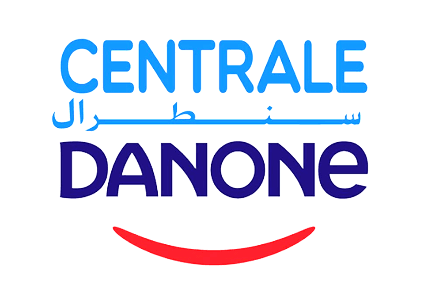
Danone is looking to new products and to its contracts with farmers to try to turn around the performance of its business in Morocco, where sales have slumped amid a boycott by consumers.
However, Cecile Cabanis, Danone’s CFO, warned on Friday (27 July) what she described as “an unprecedented event” – the company’s sales in Morocco tumbled 40% in the second quarter – “will continue to weigh on our performance for the second half”.

Discover B2B Marketing That Performs
Combine business intelligence and editorial excellence to reach engaged professionals across 36 leading media platforms.
A boycott of products by Centrale Danone – the French dairy giant’s local subsidiary – started in April amid anger at the cost of living in the north African country. Mineral-water company Sidi Ali and Afriquia, the service stations of Moroccan conglomerate Akwa Group, were also targeted.
On a conference call with analysts to discuss Danone’s second-quarter and half-year financial results, Cabanis described the situation as “ongoing” but said Danone, including CEO Emmanuel Faber, had visited the country “to understand the reasons for this boycott directly on the ground”.
She added: “We are studying how to make the relevant changes to our fresh pasteurised milk model in response to consumer environment, where purchasing power is under pressure. And we are fully ready to offer greater transparency and engaging in consumer dialogue, which, we hope, will be an important first step to restore the situation.”
Cabanis was pressed on the call about Danone’s plans to try to resolve the situation.

US Tariffs are shifting - will you react or anticipate?
Don’t let policy changes catch you off guard. Stay proactive with real-time data and expert analysis.
By GlobalData“We are contemplating to have some innovations that will be more affordable. We are studying a plan in order to also adapt our cost base work with the farmers in order to overall mitigate the overall impact of the boycott locally,” she said.
“We are opening a consultation to rebuild a dialogue and trust with the people, which will start very soon. And with that, we believe that we can find a way, with the people on the ground, to adapt our business model, especially for fresh pasteurised milk.”
The saga led Danone, which owns a 99% stake in the Morocco-listed Centrale Danone, to book a EUR660m (US$774.5m) charge in its half-year accounts to the impairment of the Centrale brand.
The slump in Morocco meant underlying sales from Danone’s international “essential dairy products” division fell 2.4% in the second quarter. Excluding the impact of the Morocco boycott, the division saw its sales inch up 0.4%.
Cabanis said the division saw its businesses in the UK and in the Nordic markets grow “solidly” but she reported France and Spain “remain complicated” even as its flagship plant-based brand in Europe, Alpro, made inroads in both markets.
Danone’s finance chief said the “momentum” of Alpro in France and Spain will “accelerate the overall turnaround” of the company’s wider dairy and plant-based in two markets that have proved challenging for the company.
She also pointed to recent innovation on brands such as Activia and Danone. “I think it’s clearly coming. It’s taking a bit of time, but it’s coming,” Cabanis added.
Elsewhere, in the second quarter, Danone’s essential dairy products business in North America, or EDP Noram, grew for the first time since the company’s acquisition of US group WhiteWave Foods. Sales were up 1.4%, leading to a 0.6% increase over the first half of 2018.
The result marked the fourth consecutive quarter of improvement from EDP Noram, which saw growth of above 5% in yogurt, in plant-based products and in coffee creamers during the three months to the end of June.
“Given the good Q2 performance and the inflection point in term of positive growth, we are very confident that H2 will confirm this inflection in term of growth,” Cabanis said.





